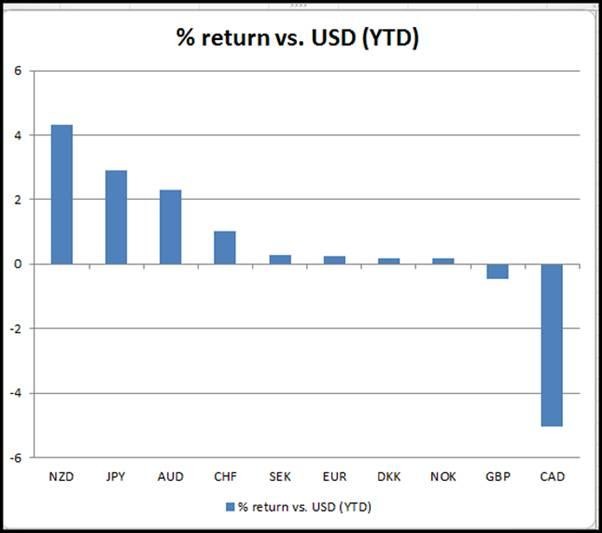What does the future hold for FX And what given the current market conditions poses the greatest
Post on: 26 Май, 2015 No Comment

You must be a trialist or subscriber to view this content
Please Subscribe or take a Free Trial below.
- Access to all our survey and award results
- Euromoney magazine in print
- Unlimited access to Euromoney.com
- More than 30 specialist supplements a year
Sign in
Email a Friend
- All fields are compulsory
Your name: Please enter your name
Add Your Comment
Under these market conditions, the ability to warehouse risk, build a critical mass of liquidity and process the growing number of tickets efficiently is key – this should benefit the larger players. Threats would include cross-asset deleveraging contagion into the macro space and the failure of counterparties and the resultant systemic issues that could arise. The market is much better prepared for the latter with CLS and collateralization, but the tail risks are still fat in some less-developed players.
We believe the future for FX is still buoyant. The market is not capped out with substantial upside potential in terms of product development, new markets and new customers. In particular, the continued rapid pace of development in Asia will open up a whole new customer base and tradable currencies as these countries emerge.
Interesting question and one we frequently ask when bidding for our share of the resource pie. The answer lies not just on the revenue side of the equation but also on the overall bottom line contribution to the business. Our approach is that a business that is growing revenues consistently, while maintaining a prudent approach to cost management, is one worth investing in. This goes beyond simply a product-driven approach, which is more cyclical and sometimes short-term in lifespan.
29 May 2008 12:43
Author: Fabian Shey and Reto Stadelmann, global co-heads of FX and money markets, UBS
FX is likely to continue to evolve and develop. The recent arrival of the leveraged retail community may well see some ebb and flow in terms of client numbers as they familiarise themselves with a slightly different market to the one they saw six months ago, but this is a healthy development. HSBC continues to look at different areas of the market that make sense from a strategic point of view and to invest in them on a sustainable basis. At the end of the day corporate and commercial clients will continue to need tools and services to manage their risk and to run their business from a cash-flow perspective and from an investment perspective. The global economy is very much the driving force behind these developments and HSBC is well positioned to play a key role in the future direction of the FX market.
29 May 2008 12:44
Author: Andrew Brown, global head of FX, HSBC
FX will be universally accepted as an asset class in its own right. Recent events have reduced appetite for more complex and risky assets and investments. Investment dollars need to find a home though, and in times of crisis, established markets with clear and reasonable entry and exit costs always see significantly increased investment allocations. FX will definitely be a beneficiary here.
We will see exponential growth in FX in developing markets. The Middle East and Africa will come to the fore and we will see continued growth in Asian currency business. Interest this year in Vietnam, Sri Lanka, Pakistan and the GCC area is a taste of things to come.
E-commerce systems that were developed to operate in lower volatility environments have coped (some might say surprisingly) well through recent events. We will see significant systems development here and real bank focus on option and emerging market FX delivery.
After a blow up, the market always reverts to less complex product and the current crisis will be no exception. Banks will concentrate on valuing and risk-managing current products more accurately, rather than developing new products. The threat of customer litigation will hang over those who have lacked diligence as regards appropriateness. Customers who have been hurt with extreme moves will also be keen to be on the sidelines for a while.
Deregulation will still move ahead, but the pace of regulatory change will slow. Memories of the Asian crisis in 1997 are still strong in the region and regulations will be kept tight to protect the onshore market.

29 May 2008 12:44
Author: Richard Leighton, global head of FX, Standard Chartered Bank
The future looks bright for FX as an asset class. The globalization of the world economy, expansion of emerging markets and further developments in derivative products present significant capacity for growth. The FX market has functioned well throughout this current crisis, and its balance sheet usage makes it attractive from a return-on-capital perspective. Within that context, the greatest threat to the success of the FX business would be a protracted credit event that resulted in settlement-related losses for banks.
29 May 2008 12:45
Author: Dan O’Sullivan, head of global FX, UniCredit Markets & Investment Banking
We believe the opportunities for the FX business are very appealing as a result of strong trade and investment flows globally, coupled with active commodity, energy and equity markets – these market ingredients should deliver robust volume growth. It is important, however, that confidence in counterparty credits remains healthy in order to allow a broad participation in the market. The industry will need to continue to innovate around clearing and collateral management.
As we have seen with other products, I think FX has mispriced risk as well. I think market spreads quoted by banks do not properly reflect the risk involved. I think spreads are going to widen across the board and customers are going to have to deal on a proper spread. This will not adversely affect the growth of FX. Participants are just going to have to start paying for liquidity.
29 May 2008 12:46
FX is still in an expansion phase despite some fall in activity with a number of leveraged funds. Ultimately the threat would come from a very unlikely collapse in international trade and/or more stringent currency regulations in emerging economies.
29 May 2008 12:46
I remain overall optimistic for the FX market and see its continued growth, but there could be some threat to the market if we see fewer market participants from brokers/dealers winding down or merging. This will definitely affect the volume growth we have been seeing over the past few years.
29 May 2008 12:47
I think for the next 12 to 18 months we will continue to see volatility in the market – the peaks and retreats will remain at a high level relative to where it was a few years ago. I believe electronic markets will consolidate, but e-trading will continue to grow both in volume and product breadth.
29 May 2008 12:48
The global FX market is driven by the increase in cross-border investing and, to lesser extent, by cross-border trade. These fundamental trends will continue over the coming decade in spite of the near-term slowdown in economic growth due to the credit crisis and financial asset deleveraging. Emerging market currencies and, increasingly, frontier market currencies will be traded much more actively relative to G7 currencies, as these countries become destinations of professionally managed pools of investment capital and they fully embrace global export markets. The FX market will also move to become almost fully electronic in terms of transacting. Research, market insights, portfolio and risk analysis, and derivatives product expertise will be expected of sales traders, but most transactions will be consummated over electronic platforms. The electronic platforms will offer both relationship-based trading mediums, as well as anonymous ones.
29 May 2008 12:49
The future should be bright for FX. The move out of structured and leveraged credit products and a bear market in many global equity markets will make FX a more sought-after asset class to trade. Volatility is high, there is a tangible trend in place, emerging market currencies continue to attract capital, and the appeal of trading a liquid asset class will ensure a strong ’08 and the prospect for a robust ’09.
29 May 2008 12:49
At Bank of America, we firmly believe we are part of a global marketplace – our customers are increasingly becoming more global, capital flows are becoming more global and the interplay between the many economies of the world is becoming more relevant than ever. As a result, we are extremely optimistic about the future of the FX marketplace and our role in it.
29 May 2008 12:50
FX is among the more complete asset classes: huge liquidity conducive to flow business and a wide range of innovative derivative-based instruments backing structured business. Its future is bright.














